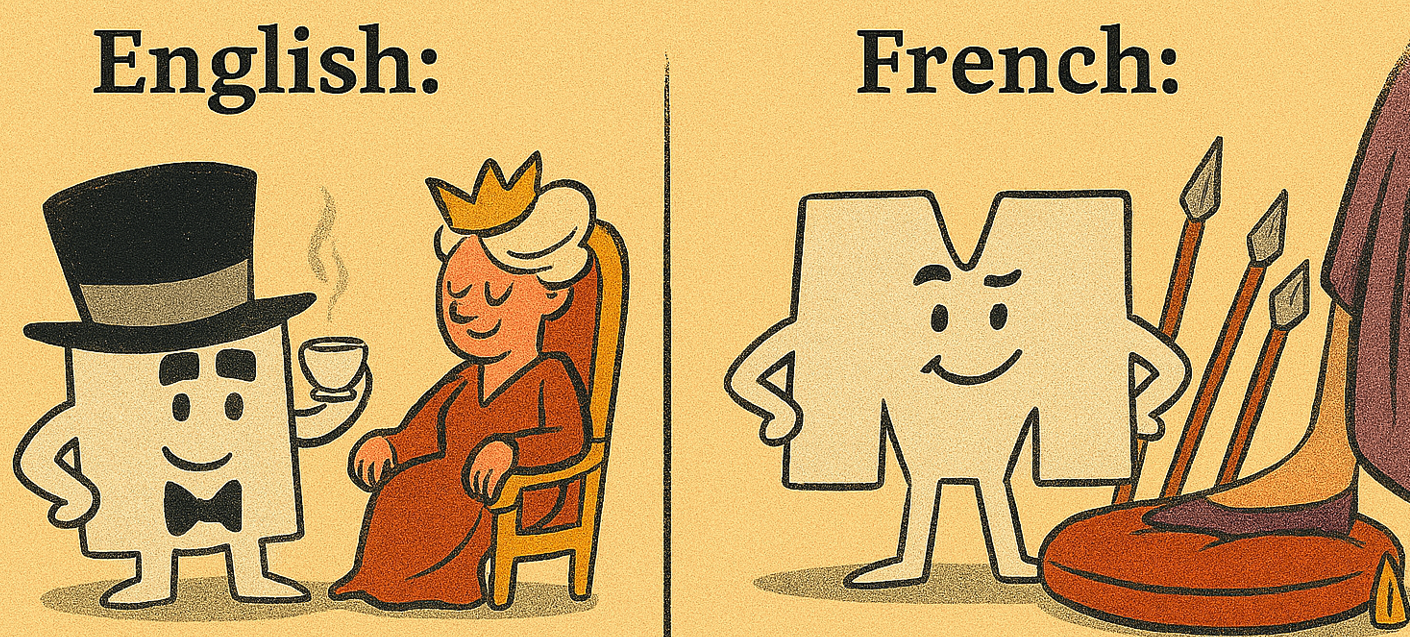Capital Offenses: Why Monsieur Gets a Capital M (Sometimes)
Let’s say you’re writing a scene in Paris. Your heroine bumps into a dashing stranger and says, “Pardon, Monsieur.” Capital M, right? Mais oui. But what if she’s telling her best friend about it later? “I spoke to monsieur Dupont.” Lowercase. Zut alors. Welcome to the delightful chaos of French capitalization.
WRITING CRAFT
10/25/20251 min read


🧠 The Rule (and the Wrinkle)
How it works in French:
Direct address → Capitalized
Bonjour, Monsieur. Merci, Mademoiselle.Indirect reference → Lowercase
J’ai parlé à monsieur Dupont.Elle a vu madame Lefèvre.
(English translation:
I spoke to Mr. Dupont.
She saw Mrs. Lefèvre.)
It’s not just grammar—it’s social nuance. Capital letters in French are like formal gloves: worn when you’re face-to-face, tucked away when you’re gossiping later.
Meanwhile, in English…
The English use of courtesy titles and honorifics doesn’t flirt with ambiguity.
Mr., Mrs., Ms.— they're always capitalized, always abbreviated, always ready for tea with the Queen.
French titles, on the other hand, are full words and full of attitude. They only dress up when the occasion demands.
✍️ Writer’s Tip
If your character is bowing to Monsieur le Comte, give him a capital M.
If she’s muttering about monsieur le comte while plotting his downfall? Lowercase. He’s not invited to the respect party.
